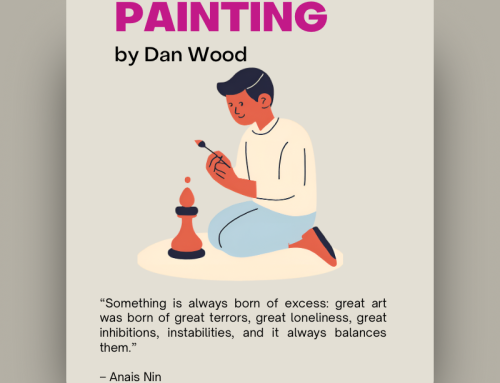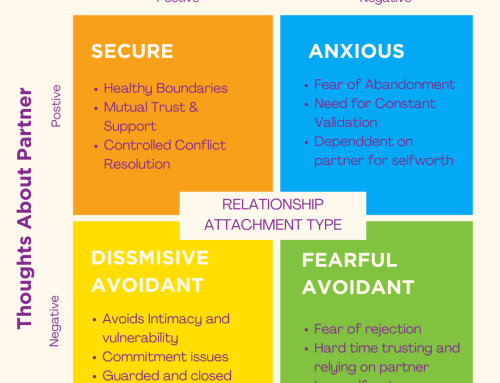Exploring TikTok’s ‘Shadow Work’ Trend: A Guide to Shadow Work Prompts
Social media opens many doors for conversation and has an amazing power to bust taboos. TikTok, in particular, accelerates this, especially among those under 25 – where trends drive creators to explore topics. And lately, a trend called Shadow Work and Shadow Work Prompts has taken social media by storm with millions of views of videos.
In short, Shadow Work delves into a profound aspect of self-discovery and personal growth.
In this blog, we’ll explore what Shadow Work is, how it’s become a sensation on TikTok, and provide guidelines for conducting it. Plus, understanding where to go if what you find confuses you or makes you feel vulnerable.
What Is Shadow Work?
Shadow Work is a psychological concept rooted in the teachings of Carl Jung. It involves delving into the unconscious parts of your mind exploring your hidden emotions, desires, and unresolved issues.
The idea of Shadow work is that you can heal and grow as an individual by acknowledging and understanding these shadow aspects of yourself.
Shadow Work is often described as something you can do yourself, which is true in many ways, as self-discovery, self-reflection, and, more importantly, self-love should always be part of our journey towards emotional health. It’s important that this is a gentle and supportive journey, though, as it often causes more questions and strong feelings to surface.
TikTok’s Take on Shadow Work
TikTok has made Shadow Work accessible and engaging for a broad audience. TikTok creators share their personal experiences, stories, and insights, making it relatable and less intimidating. Many creators post videos discussing their journey through Shadow Work, offering guidance, and showcasing its transformative power.
One significant aspect of this trend is the use of “Shadow Work Prompts.” These prompts are thought-provoking questions or statements designed to help individuals explore their hidden emotions. They encourage self-reflection and self-acceptance, driving personal growth.

Conducting Shadow Work Safely
Shadow Work can be a powerful tool for self-improvement, but it should be approached as a gentle and supported journey. Here are some tips to ensure you conduct Shadow Work safely:
- Start Slowly. Begin with light prompts to ease into the process. As you become more comfortable, you can tackle deeper issues.
- Set Intentions. Clearly define your goals for Shadow Work. What do you want to achieve or discover about yourself? Having a purpose will keep you focused.
- Seek Support. Share your experiences with a trusted friend or therapist. They can provide guidance and emotional support during your journey.
If you feel deeply sad, you can contact your doctor, a therapist directly, or 999 in an emergency. Remember, there is always someone here to help you. Samaritans are 24/7 on 116123.
- Self-Compassion. Be gentle with yourself. Shadow Work can bring up difficult emotions, but remember that it’s a process of healing, not self-condemnation.
- Their journey, not yours. Be aware that some videos, although inspiring, are not from qualified therapists, so be mindful of those who instruct you, as the action might impact you positively or negatively. It’s their journey, not yours.
- Know Your Limits. If a prompt or a particular aspect of Shadow Work becomes too overwhelming, it’s okay to take a step back. Your well-being should always come first.
Shadow Work Prompts to Get You Started
Here are a few Shadow Work prompts to initiate your journey:
- “What is a childhood memory that still affects my self-esteem today?”
- “What negative beliefs do I hold about myself, and where do they originate?”
- “What am I afraid of admitting to myself and others?”
- “How do I self-sabotage, and why do I do it?”
- “What do I need to forgive myself for?”
Delving into a deeper or ‘shadow’ part of yourself is a journey – be kind to yourself and know when to take some of the questions you have to a doctor, therapist, or friend if it gets tricky.
The Arts of Change Trust is one of many therapy services that you can use, and you can self-refer to us if you’re over 18 or have a guardian self-refer if you are under 18. We are a charity and also offer private sessions for £30 (trainee) and £40 (fully qualified therapist). We offer phone, face-to-face, and online appointments to suit you with all types of therapy, such as talking therapy, drama, play, and dance. Call us on 01384 211168 or email support@theaoc.org.uk for more information.





